Photo courtesy Tom Fox.
Warning: This article discusses topics regarding death and illness.
The COVID-19 pandemic has been an omnipresent force throughout the globe, and with new vaccines and variants, the virus has persevered. For University of North Texas senior Hannah Larson, fear and panic are among the feelings that set in when they enter the classroom. For some, the fear of becoming sick has reached a difficult intersection between perceived safety and effective education.
Throughout Texas, universities’ protocols have differed for the spring semester. From fully online classes for the first few weeks such as the University of Texas at Dallas to optional online classes for the first few weeks such as Texas Woman’s University, the protocols across universities has been anything but unanimous. For UNT, classes have remained face-to-face, a decision driven by what the university thought would be best for students’ mental health.
“We feel that remaining in person is the best way we can serve our students,” spokesperson Trista Moxley said in a statement to “The Dallas Morning News.” “As we did last fall, UNT will accommodate remote learning on a case-by-case basis.”
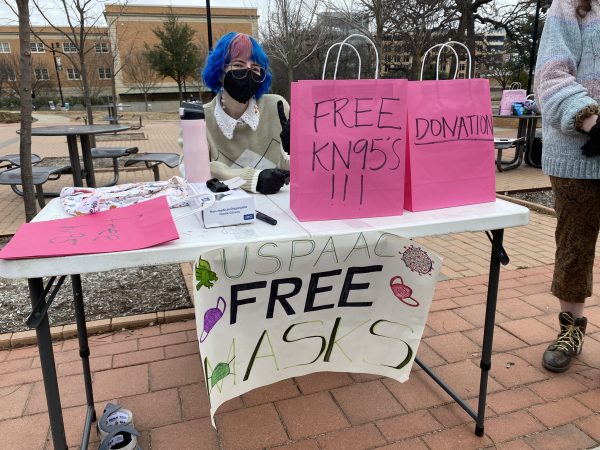
The students, among faculty and staff, formed the University of North Texas Student-Professor Alliance Against COVID-19. Their primary goals consist of UNT providing the choice for virtual options for all students, housing options for those who test positive and widespread access to durable masks such as N95s or KN95s.
“As someone who is immunocompromised, it is extremely upsetting to see UNT’s lack of safe covid policies,” Larson said. “ I have [anxiety attacks] in the bathroom in the middle of class because I am so scared that I will get sick. No one should ever have to have that amount of fear when they are trying to get an education.”
Dozens of students collected on the Union South Lawn on Jan. 27 and were handing out masks and holding signs reading “Give us a voice,” and “Safe education is our right.” Among the protesters was associate professor of English and councilwoman Deborah Armintor, who said that creating virtual options involves technology already in the classroom. Speakers and attendees voiced their concerns about the lack of social distancing in classrooms, concerns about the omicron variant and the increase in infection and hospitalizations in the Dallas-Fort Worth area.
“People want to be healthy,” said Kaylen Ruiz. “People want to be safe. When you’re putting students in a position where it’s becoming increasingly difficult to be able to maintain the line between wanting to get an education and worrying about getting sick from COVID-19, it makes you wonder if [UNT is] really prioritizing the mental health of students.”
In an interview with the “North Texas Daily,” UNT President Neal Smatresk said that offering every class online would not be feasible and that the combination of “no evidence of bad things happening on campus” with the no-omicron related hospitalizations of university members motivated the decision to keep classes in their intended format.
Larson and Ruiz both cited the passing of UNT senior Helen Etuk as a motivation in creating the petition and the protest. Etuk, an aspiring pediatrician, passed away from COVID-19 complications on Jan. 12, 2021 at a hospital in Arlington. Etuk, who suffered from lupus, a chronic disease of the immune system, rose concerns for fellow immunocompromised students at UNT.
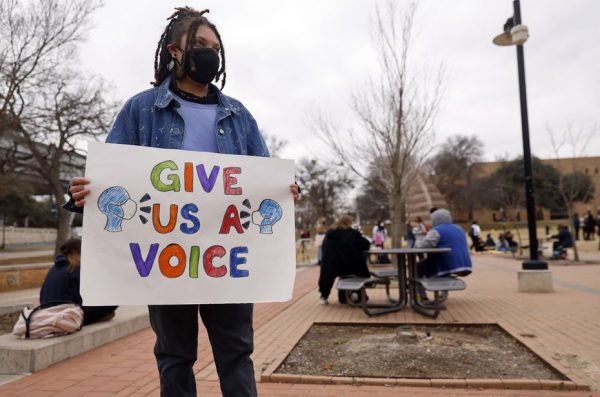
According to Etuk’s mother in an interview with “The New York Times,” Etuk blamed herself saying she made a mistake in going back to school in-person and that students don’t always wear their masks correctly.
“Why are we waiting for students to get worse before they can get better?” said Ruiz. “Why are we essentially not allowing students the option to not get sick?”
UNT’s covid support reflects larger issues happening as a result of the pandemic such as difficulty finding tests and fears of missing school or work due to a positive status. UNT’s university enrollment has continued to grow amid the last three years, which Ruiz suspected as a cause of UNT’s covid cases rising more than 140% since Dec. 31.
Additionally, UNT’s policy does not allow students that have tested positive for covid to stay in the residence halls, leading some students to make the decision whether or not to go home and further expose their families, if they have a family to return to.
In response to this, the UNTSPAAC wants to proactively protect students by providing a virtual option. According to Ruiz and Larson, teachers are required to record their lectures with Zoom so students that are isolated due to COVID-19 can attend online, leading them to believe that the transition would not be incredibly strenuous for professors.
“Regarding Zoom and professors, I think that if they work hand in hand, [UNT] has plenty of resources to keep students safe,” Ruiz said.
Following the protest, Smatresk has agreed to meet with co-coordinators Larson and Ruiz to discuss possible future adaptations to the university’s protocol. Solidarity protests have occurred on TWU and Texas A&M’s campuses. Additionally, the UNTSPAAC will continue to distribute N95 masks across campus for those who need them.
Maddie Ray can be reached via email at mray10@twu.edu.

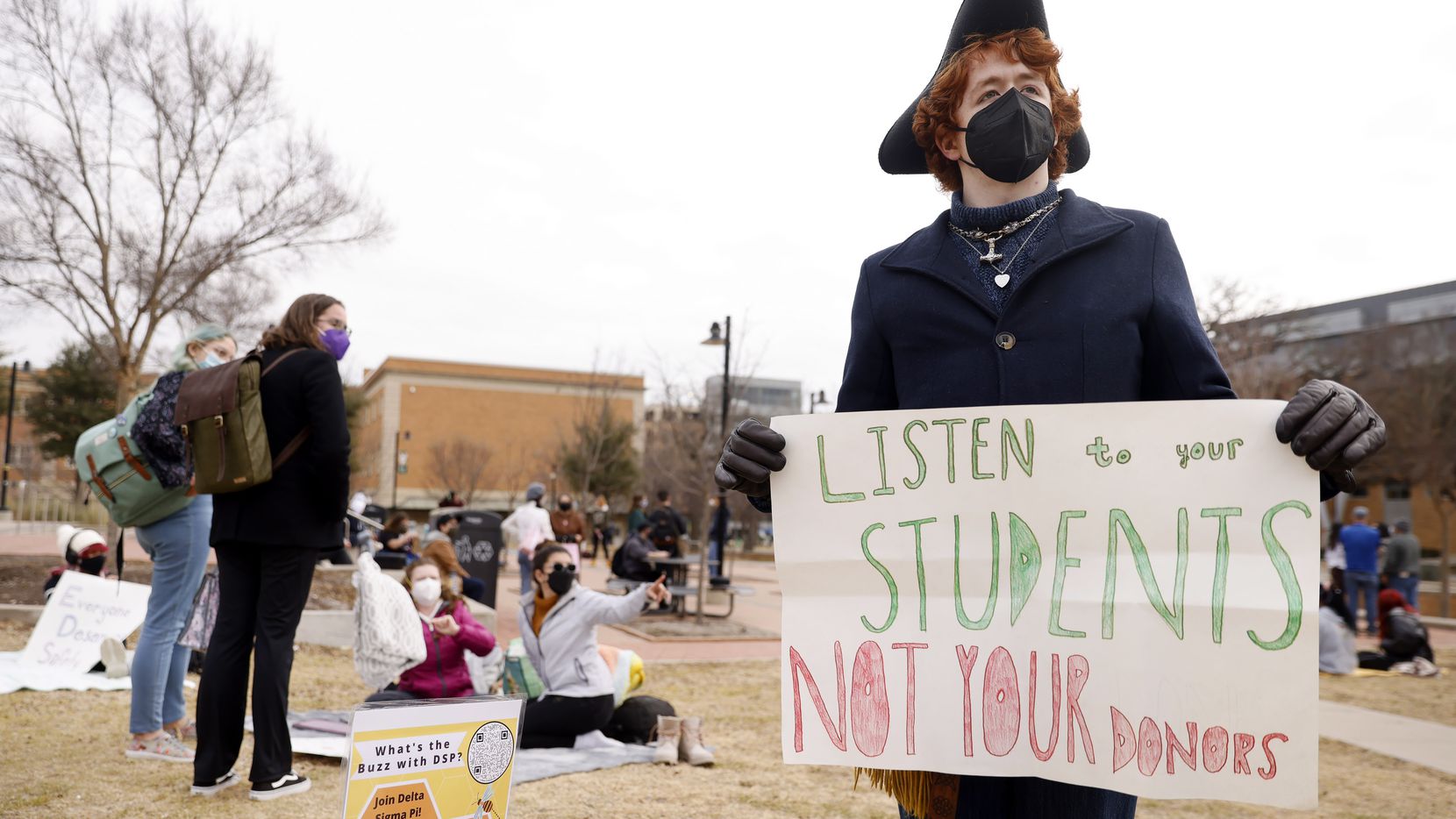


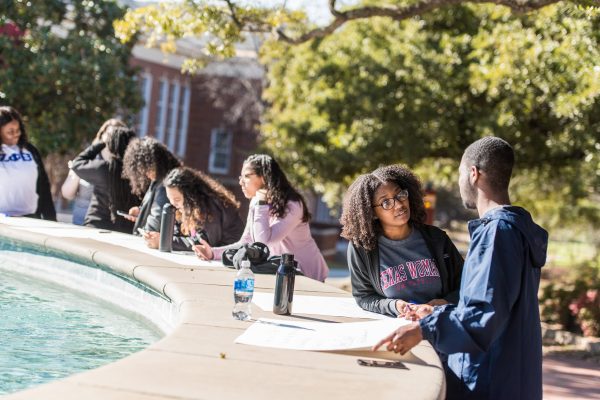


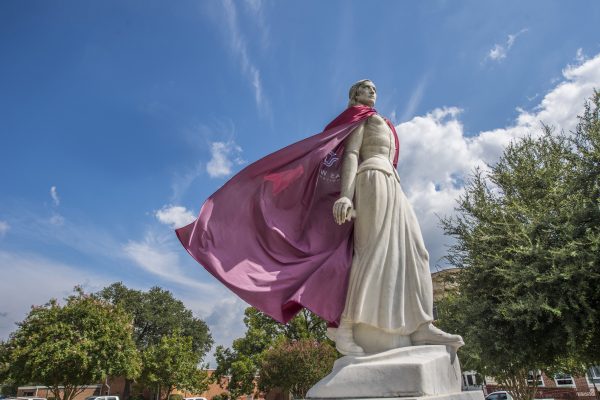
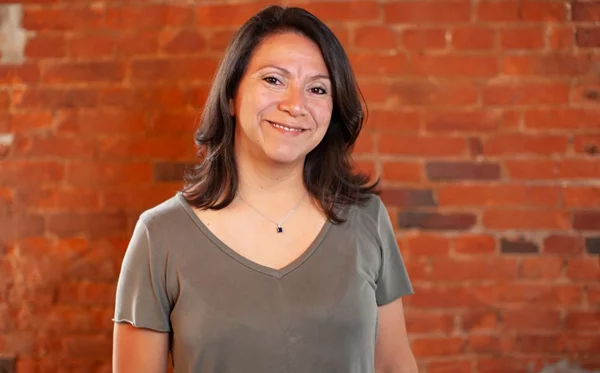

Be First to Comment